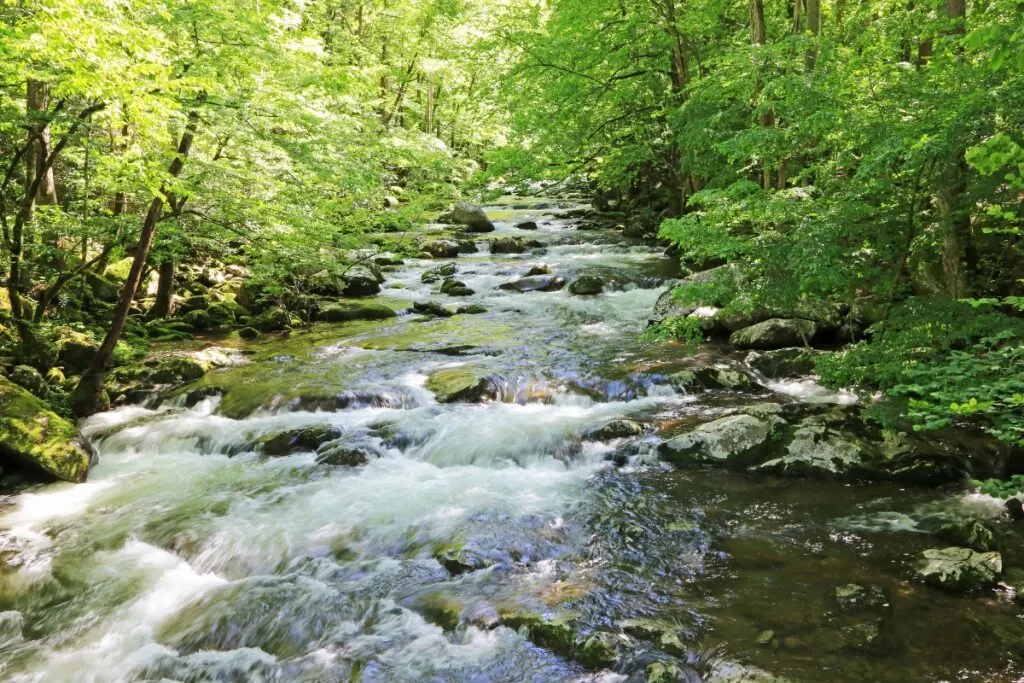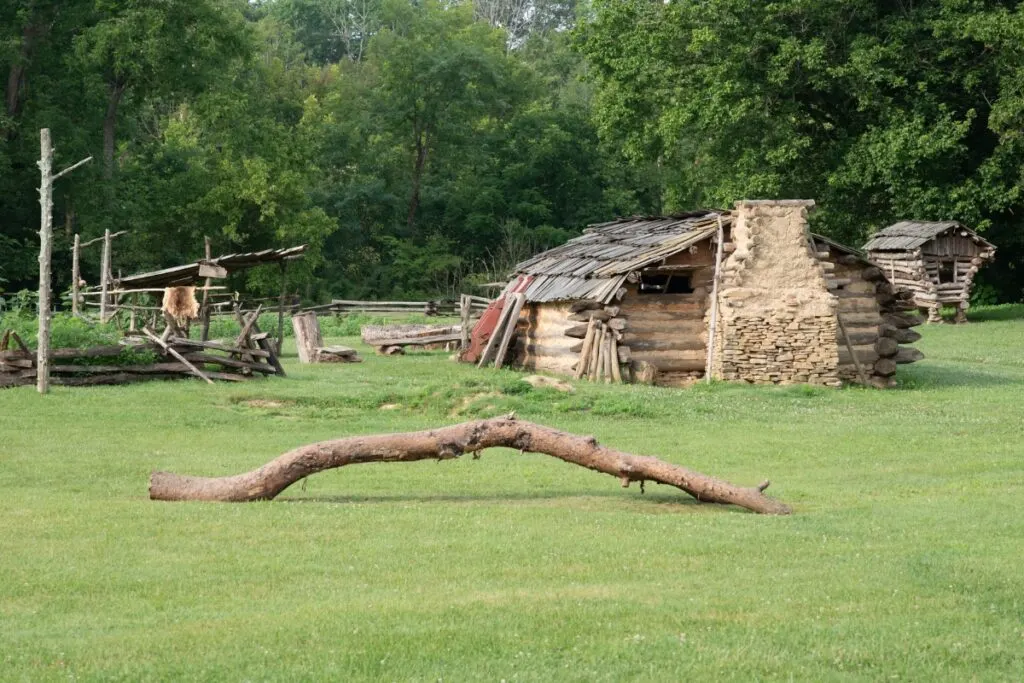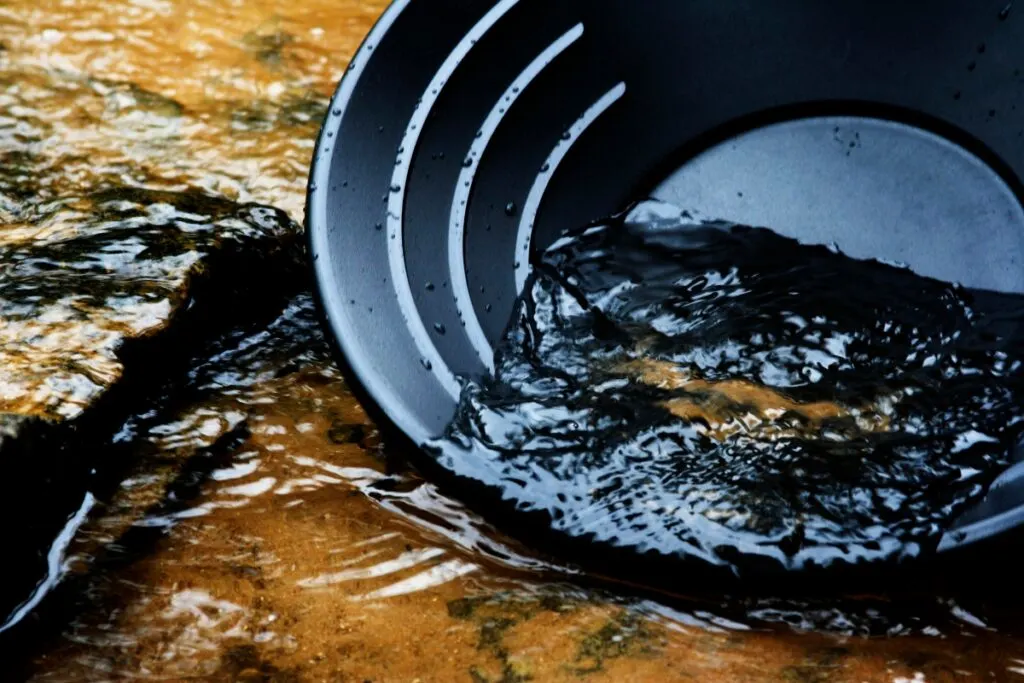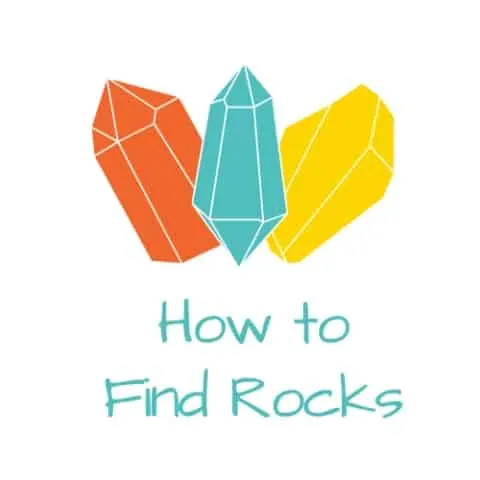As an Amazon Associate, I earn from qualifying purchases with no additional costs for you.
Tennessee might just be the place to make that dream come true. You’ll learn the tricks of the trade, from the art of panning to the science of sluicing, and you’ll understand that the real treasure isn’t just in the gold itself but in the memories and experiences you’ll create along the way.
The best gold prospecting locations in Tennessee are:
- Coker Creek
- Little River
- Duck River
- Nolichucky River
- French Broad River
- Pigeon River
- Tellico River
So, whether you’re a seasoned prospector or a curious newcomer, there’s no time like the present to embark on a gold prospecting adventure.

If you want to check out the best tools and equipment for gold prospecting, you can find them by clicking here (Amazon link).
The Legality of Gold Prospecting in Tennessee
Gold prospecting is indeed permitted in Tennessee. It’s a legitimate recreational activity, and if you’re willing to go through the proper channels, you can obtain a permit to search for gold on public lands.
However, not all public lands are open to prospecting, and there are regulations you must follow to stay within the bounds of the law.
You’re not permitted to search for gold in any National Park. Additionally, the State of Tennessee controls the mineral rights on certain public lands. A permit is required for mineral collection or prospecting activity on these lands.
If you’re not a landowner, you’ll need to seek permission from the property owner. And make no mistake, even if the property owner gives you the green light, you’ll still need to ensure you have the mineral rights.
Mineral rights can be severed from surface rights, and just because someone owns a piece of land doesn’t necessarily mean they have the rights to the minerals beneath it.
The regulations governing gold prospecting in Tennessee can vary significantly depending on your county or municipality. Some local jurisdictions have rules and regulations regarding prospecting, which may be more stringent than the state’s rules.
7 Best Places to Find Gold in Tennessee
Tennessee offers a wealth of opportunities for gold prospectors. From rivers and creeks to historic mines, the Gem State has it all. Here are the top 10 best places to find gold in Tennessee:
Coker Creek
Coker Creek, located in southeastern Tennessee, is one of the state’s most famous spots for gold panning.
Prospecting here is a bit like stepping back in time – the creek is a picturesque, serene spot, lined with trees and bursting with the sounds of nature. Watch for gold flakes and nuggets in the creek’s bedrock cracks.
The Coker Creek Gold Festival, held annually, is a testament to the area’s rich gold heritage. Remember, patience is key!
Little River
The Little River, situated in the foothills of the Smoky Mountains, is renowned for its gold deposits. Prospecting along this river can yield significant rewards. Focus on the tributaries and streambeds, where gold is often concentrated.
As you pan for gold, take a moment to appreciate the stunning mountain views surrounding you. The Little River is a tributary of the Tennessee River, flowing through the Great Smoky Mountains. The calm waters and the surrounding natural beauty make this a favorite spot for gold prospectors.
Duck River
The Duck River, the longest river located entirely within Tennessee, has a rich history of gold prospecting. The river is known for its fine gold, especially around Columbia.
The Duck River in central Tennessee is home to an array of mineral resources, including gold. Placer gold, formed by the natural erosion of gold-bearing rock, can be found in the river’s gravel and sandbars.
Due to the river’s meandering course, gold often accumulates in natural traps. Exploring these areas can result in exciting discoveries.
TIP: Find out my recommended products if you are looking for the best tools you need to find gold (Amazon link):
- Gold Metal Detector: Bounty Hunter TK4 Tracker
- Gold Pan: Stansport Deluxe Gold Pan
- Sluice Box: Stansport Aluminum Sluice Box
- Shovel: Radius Garden Carbon Steel Shovel
- Snuffer Bottle: Stansport Snuffer Bottle
Nolichucky River
The Nolichucky River is located in East Tennessee. The Nolichucky River boasts spectacular scenic views and a reputation for gold. Prospectors have found gold in the river’s gravel beds and sandbars.
Many gold enthusiasts visit the area near Greeneville, where gold flakes have been reported in the river’s streambed.
The Nolichucky also boasts stunning views, providing a tranquil backdrop for your gold-panning adventures. It’s a great place to immerse yourself in the gold prospecting experience as you explore the nooks and crannies of the river.
French Broad River
The French Broad River winds through the Appalachian Mountains, bringing tales of gold. Prospectors have found gold in the river’s sandbars, particularly around the Hot Springs area.
While you pan for gold, enjoy the breathtaking views of the surrounding mountains. Flowing through eastern Tennessee, the French Broad River has a long history of gold discovery.
Pigeon River
The Pigeon River, nestled in the eastern part of the state, offers exciting opportunities for gold prospectors. Pan for gold in the river’s sand and gravel bars and explore the surrounding terrain for hidden treasures.
This is a favorite destination for gold panners. Concentrate on the river’s sand and gravel bars, where gold accumulates.
As you sift through the gravel, take in the sights and sounds of the river’s lush vegetation and diverse wildlife.
Tellico River
The Tellico River in the Cherokee National Forest offers a pristine setting for gold panning. The riverbanks are known for their gold deposits, with black sand often serving as a valuable clue.
The Tellico River provides an unforgettable prospecting experience, surrounded by the beauty of the national forest. As you explore the riverbanks, look for signs of gold, such as black sand.
With its pristine surroundings and the promise of golden discoveries, the Tellico River is an irresistible destination for gold enthusiasts.
TIP: Simple gold panning is among the most allowed gold prospecting techniques you can use almost anywhere. Check out other effective methods in the article below:
The 7 Most Effective Gold Prospecting Techniques Explained
Active, Old & Abandoned Mines
Each of the mines we outlined below provides unique opportunities for gold prospectors and insight into Tennessee’s rich mining history. Let’s explore notable mines throughout Tennessee and identify their current status.
Ducktown Basin (Inactive)
The Ducktown Basin “City of Copper” Ducktown’s rich mining history goes back to 1843. At its peak, smoke from the mining activities could be seen from miles away, leading to extensive deforestation.
Extracted Copper, sulfuric acid, and iron. While operations ceased in the 1980s, the memories are kept alive at the Ducktown Basin Museum.
Elmwood Mine (Active)
The Elmwood Mine First opened in 1969. Elmwood Mine wasn’t just another mine. It was where miners unearthed some of the world’s most exquisite fluorite specimens. Extracted Predominantly zinc.
But ask any gem collector, and they’ll rave about Elmwood’s fluorite, famous for its stunning clarity. It is still operational but at a diminished capacity. Elmwood fluorite beautifies local shops, a testament to its enduring legacy.
Coal Creek Mines (Old)
The Coal Creek Mines Established in the 1800s, Coal Creek was more than a mine. It was an epicenter of labor movements, notably the Coal Creek War of 1891.
Extracted Black gold—coal. And not just any coal, but some of Tennessee’s finest. Today, it stands quiet.
The Coal Creek Miners Museum is where stories of bravery and revolt against oppressive mining conditions come alive, ensuring future generations never forget.
TIP: Starting your gold prospecting journey depends on your seriousness and knowledge. Check out the ultimate guide on starting gold prospecting in the article below:
Ultimate Beginner’s Guide: How To Start Gold Prospecting
Gold Prospecting Clubs in Tennessee

In this section, we explore the major gold prospecting clubs in Tennessee. As you read further, you’ll learn to gain access to valuable resources, meet fellow prospectors, and have the opportunity to explore and prospect in some of the state’s most gold-rich areas. Here are some gold prospecting clubs in Tennessee.
Tennessee Gold Prospectors Association (TGPA)
The Tennessee Gold Prospectors Association is Located primarily around Eastern Tennessee. The OGs of the Tennessee gold prospecting scene. This association has been around for quite some time, providing resources, communal digs, and prospector support.
They offer monthly meetings with like-minded folks happy to share their gold-finding tales. Plus, with regular outings and hands-on demonstrations, you’re bound to learn a thing or two!
East Tennessee Prospector’s Club (ETPC)
The East Tennessee Prospector Club is located around Coker Creek and its environs, where the very legend of Tennessee gold was born. This historic gold mine area is near the southeastern part of Tennessee.
Affiliated with the National Gold Prospectors Association of America, this chapter offers the local flavor with national resources.
Hear tales from old-timers, laugh with fellow greenhorns, and immerse in an atmosphere that makes every expedition an adventure.
They regularly conduct outings around the Coker Creek area, which is rich in gold history.
Middle Tennessee Prospector’s Association (MTPA)
The Middle Tennessee Prospector’s Association is located in the middle of Tennessee. The Heart of Tennessee. A more intimate and tight-knit group than the TGPA, this club thrives on community spirit.
These folks believe in the magic of camaraderie.MTPA is your go-to place for workshops that take you from novice to near-expert in no time. They pride themselves on their open-door policy. Got a question about gold prospecting? They’ve got an answer. Or at least a good story.
TIP: Nothing in this world is impossible, and finding gold in your backyard is rare but can never be ruled out. Find out helpful tips in the article below:
Guide: PRO Tips On How to Find MORE Gold in Your Backyard
Gold Panning Tours in Tennessee
Gold panning tours in Tennessee offer a unique opportunity for visitors and residents to experience the excitement of prospecting for gold while learning about the state’s rich mining history. Here are some gold panning tours available in Tennessee:
Coker Creek Gold Panning Tours
The Coker Creek Gold Panning Tours is Nestled in the heart of Monroe County. This is perhaps the most famed gold panning spot in Tennessee. The first gold discovery in Tennessee was made here in 1827.
Pan for gold in the creek that’s been the heartbeat of numerous golden tales. Guided tours provide insight into methods, tools, and tales of the massive nuggets of yesteryears. From professional guides, learn the art of panning and sluicing.
Gatlinburg Gold Rush
The Gatlinburg Gold Rush is Just a stone’s throw from the Smoky Mountains. Gatlinburg might be known for its Smoky Mountains and moonshine, but did you know about its hidden golden gems?
This isn’t just gold panning; it’s an experience. You get to learn about the history, the geology, and the art of panning. Enjoy a hands-on experience where you get to keep what you find.
Gatlinburg was not a major hub, but the quiet streams had tales (and treasures) to tell. Designed more for families, it blends history and panning fun. Ideal for beginners!
Roaring Fork Gold Adventure
The Roaring Fork Gold Adventure: Roaring Fork is your spot. Nestled amidst nature’s grandeur, Near the Great Smoky Mountains National Park border.
Panning here is nothing short of therapeutic. The tour emphasizes the balance of enjoying nature’s bounty while respecting and conserving the environment.
To dive deep into the streams or stand by the shallows. Either way, it’s a joyride of emotions. After panning, take a stroll. The landscape is a treasure in its own right.
TIP: The gold sluice box is a time-saving alternative to the traditional panning for gold. Check out helpful tips on using the sluice box correctly in the article below:
Find More Gold: Tips On How To Use Sluice Box Properly
Gold Prospecting Law: ls Gold Panning Legal in Tennessee?

If prospectors follow the appropriate rules and regulations, gold panning is legal. Here’s what you need to know about gold prospecting laws:
Property Rights
Much of the gold prospecting happens on private land in Tennessee. So, before you get to panning, ensure you’re not trespassing. Always ensure you’ve got the green light, whether on private or public land.
Public Land
Most state parks prohibit gold panning, but exceptions exist. Do your research. As enticing as those rivers and streams might look, not every public space welcomes gold panning. State parks, for example, are generally a no-go.
However, there are specific public lands where recreational prospecting is permitted, but you’ll need to dig into local regulations for the specifics. You might just strike gold (legally).
Claim Debate
If you’ve caught the gold fever and you’re considering staking a claim, you might want to hold your horses. Tennessee isn’t the Wild West, and you can’t simply stick a flag in the ground and call dibs.
As they’re known in states like California, claims aren’t really a thing here. Instead, you’re looking at either permissions or leases.
Environmental Stewardship
Gold fever is no excuse to ignore Mother Nature. Prospecting can affect water quality and aquatic life. Stay informed and minimize your impact. After all, we want Tennessee’s streams to remain as golden in health as they are in our gold-panning dreams.
The Water Resource Act ensures that prospectors don’t harm aquatic habitats. It’s not just about the gold; it’s about preserving the state’s natural beauty and ecology.
TIP: Gold panning is legal in the U.S. however, you must remember that every state has gold panning laws. Find out the complete guide on gold panning law in the article below:
Complete Guide: Is Gold Panning Legal & Where Can You Pan?
Tips on Getting a Gold Claim in Tennessee
Securing a gold claim in Tennessee can be exciting and rewarding, allowing you to prospect for gold on your land. Here are some tips to help you get started:
Understanding the Basics
Before dreaming of golden nuggets, you must understand what a gold claim is. The Research Marathon Researching might seem mundane, but in the gold world, it’s pure adrenaline.
You can dive into the BLM archives, visit your local county clerk, or flip through old Tennessee historical maps. Tennessee’s gold belt is a good place to start. Coker Creek, Or maybe the Duck River. Surprising to many, this location has shown traces of gold.
Legal & Regulatory Landscape
Gold prospecting isn’t a free-for-all. From environmental permits to specific Tennessee state rules, the legal world can be as labyrinthine as underground mines. With the right compass (or lawyer), you’ll easily navigate.
You must go through the Bureau of Land Management (BLM) or state equivalent to stake a legal claim. A lot of the lands might be privately owned. The best you can do at any time is to always ensure you have the rights or permissions to prospect.
TIP: Check out the article below if you also want to know about the best rockhounding spots in Tennessee:
Rockhounding in Tennessee: Where to Go & What to Find
Right Tools
Gold prospecting isn’t just about luck; it’s about the right tools, too. A pan, a couple of vials, tweezers, and a magnifier. Sluice Boxes, When you’re ready to step up the game. Metal Detectors, For those sneaky nuggets hiding just beneath the surface.
Join a Prospecting Club
When it comes to gold prospecting, two heads (or more) are often better than one. Who better to learn from than locals searching for gold for years? Many clubs have shared equipment, claims, and resources.
Environment Matters
The Environment Matters. With great power comes great responsibility. Finding gold is fantastic, but respecting the land and your fellow prospectors? That’s true gold.
From filling in holes to friendly waves across the creek, there’s an unspoken code in the prospecting world. After digging or disturbing an area, do your part in returning it to its natural state. No gold is worth destroying Mother Nature!
TIP: Find out my recommended products if you are looking for the best tools you need to find gold (Amazon link):
- Gold Metal Detector: Bounty Hunter TK4 Tracker
- Gold Pan: Stansport Deluxe Gold Pan
- Sluice Box: Stansport Aluminum Sluice Box
- Shovel: Radius Garden Carbon Steel Shovel
- Snuffer Bottle: Stansport Snuffer Bottle
Wrapping up
Tennessee offers a wealth of opportunities for gold prospecting. The state’s diverse landscapes and rich gold-mining history make it an enticing destination for novice and experienced prospectors.
As you explore these promising locations, embrace the thrill of the hunt and the joy of discovery. Remember, gold panning is as much about the journey as the destination. Patience, the right equipment, and proper technique are essential. Good luck, and happy prospecting!
TIP: You need to know how gold deposits occur to understand which rocks to look for when prospecting. Find out more in the article below:
5 Rocks You Need To Look For When Gold Prospecting (+ Why)
